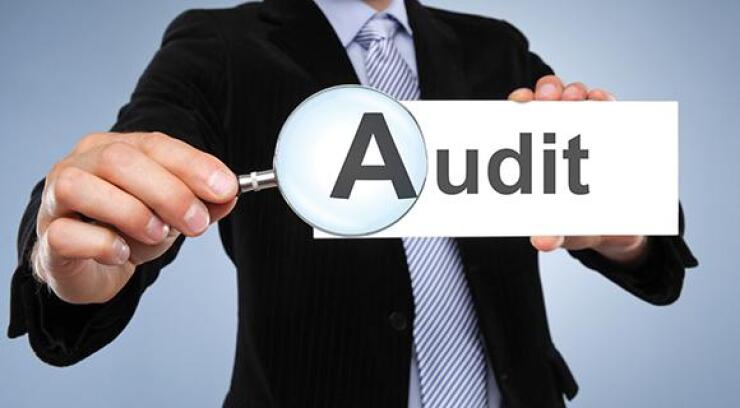AICPA and CIMA offer resources for organizations facing single audits

Many companies have benefited from federal government relief acts and programs such as the American Rescue Plan or the Provider Relief Funds during the pandemic. But if they are a nonfederal entity that spent $750,000 or more in federal funds during a fiscal year, they will be required to have a single audit performed on those funds.
Performed under Office of Management and Budget Uniform Guidance regulations, single audits examine whether a company has been handling its funds in accordance with laws and federal regulations. According to the AICPA, leaders of such organizations must appreciate what their responsibilities entail, and they also need to understand how to seek out the CPAs with the best qualifications to perform their audits.
“We know demand for single audits and other similar types of compliance audits has risen dramatically due to the historic amounts of federal pandemic relief funding provided in response to the health and financial crises of the last several years,” said Mary Foelster, AICPA senior director of governmental auditing and accounting, in a statement. “Many of the organizations receiving this funding have never gone through a single audit before, so we’re providing resources to help their leaders understand the process, perform their fiduciary duty and take steps to find the right firm to conduct a quality audit.”
To help businesses subjected to single audits or other compliance engagements, the AICPA and CIMA offered several resources to simplify the process.

The AICPA brochure “Hiring a Quality Auditor” explains that examining an auditor’s experience is not enough to guarantee a successful audit. A company must consider whether the auditor’s professional education and experience align with its area of focus — banking, retail, etc. — but also examine independence and licensure rules. For auditors to perform their duties, an organization must ensure no conflicts of interest occur.
The primer also indicates that membership in public policy organizations such as the AICPA’s Governmental Audit Quality Center or the Center for Audit Quality can demonstrate a firm’s commitment to excellence and help an individual make their choice.
“Since the single audit process covers both an organization’s financial statements and compliance with the federal awards it has received, a single audit can be an extensive and complex procedure,” said Lee Klumpp, national professional practice partner for BDO USA. “Organizations should be sure that the auditor they use has the competency and appropriate experience with the process and has the required training needed to perform such an audit.”
When a company makes a request for a proposal, the AICPA recommends asking questions during the process and only hiring an audit firm once all necessary information is collected. To obtain a comprehensive proposal tailored to their needs, a client should also provide the firm with as many details as possible about the nature of the entity and the expectations surrounding the engagement.
Once all proposals are completed and it’s time for an evaluation, a company should examine the information provided following a level of minimum standards. According to the brochure, this will allow clients to review relevant proposals only and remain productive until selecting an auditor. Once they are chosen, the auditor will be required to send a letter documenting the approved terms of the audit engagement, and the company is advised to seek legal counsel when reviewing the document.

In its brochure “Tips for Organizations Subject to Single Audit Requirements,” the AICPA provides recommendations for companies who may be inexperienced with single audits.
1. Know when you need a single audit
Between 34,000 to 38,000 single audits were performed each year before the pandemic, but the trillions of dollars authorized for COVID relief funding increased that number significantly. For example, thousands of small entities benefited from the $350 billion Coronavirus State and Local Fiscal Recovery Fund program, many of which may be unprepared for a single audit or managing federal funds.
2. Understand your federal funding
Understand the filing requirements specific to the relief funds received, as what needs to be completed and submitted can vary by funding type.
3. Understand relevant compliance requirements
“Noncompliance can have significant consequences,” said Klumpp. “The government may withhold funds until the deficiency is remedied, suspend or terminate the award, initiate suspension or debarment proceedings or withhold additional awards.”
4. Establish effective internal controls
Ensure that the appropriate internal controls over compliance are designed, implemented, documented and reviewed on a regular basis internally for effectiveness.
5. Evaluate compliance
6. Ensure your auditor is qualified
7. Preparation steps
An organization must gather all necessary information the auditor may need — access to personnel, accounts, books, records, etc. — and meet them before the end of the fiscal year. It is also critical to document federal awards spending accurately and identify problem areas in advance, to keep the process smooth.
8. After-audit steps
Once an audit is complete, a company should submit its corrective action plan if needed and ensure the audit and reporting package is timely submitted. Organizations must submit the package either within 30 calendar days after receiving the auditor’s report or nine months after their fiscal year end, whichever comes first.
To enhance the quality of accounting, auditing and attestation services performed by its members in the public sphere, the AICPA established a peer review program, which offers resources for CPA firms, reviewers and the public. The organization also has a checklist on getting ready for a single audit, an on-demand webcast, Preparing for Your First Single Audit, and a FAQ on single audits.


